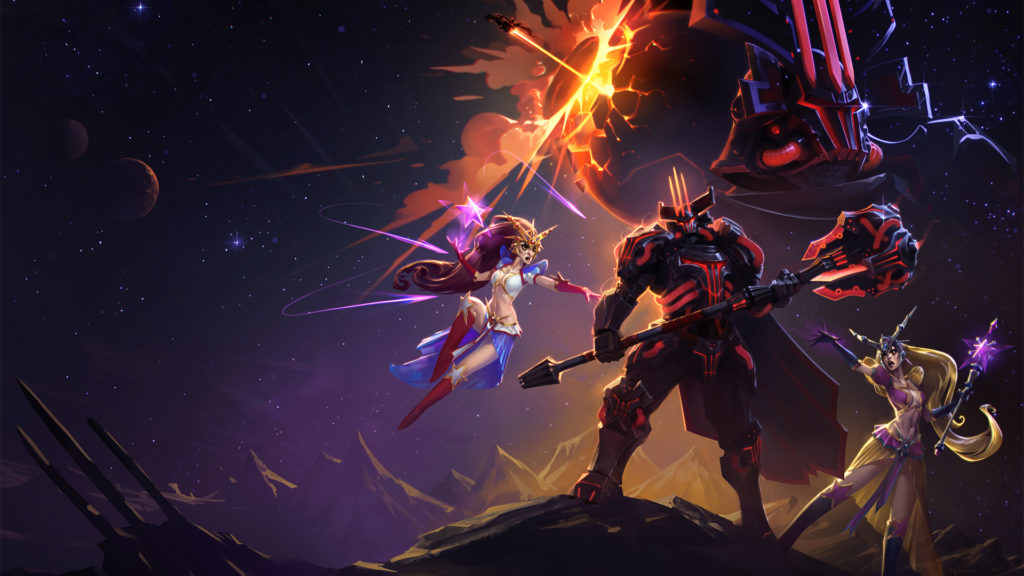I wanted to give the Star Wars: Battlefront II scandal some time to calm down before I chimed in my opinion on the matter. Microtransactions are a reality of gaming now because the economics show that they work. Are they right or wrong, do they constitute gambling, and are they even worth it?
Morality in Gaming Economics
At this point, I don’t think that I’d be blowing any minds to say that capitalism is amoral. At the same time I do think that consumers should be able to exert market pressure with forces other than their wallet. Perversely, gaming companies have conjured up the inverse of that sentiment with the invention of loot boxes.
Demand preceded supply. As in, game companies put the seed that players should want to spend more money on their games, and then once they realized that we’d do it, then they scrambled to figure out how. Microtransactions weren’t invented to take money from their consumers, they were invented to figure out how to facilitate consumers giving them money. Weird, right?
So, are they right or wrong? Well, consumers demanded a product, so the manufacturer supplied it. There is no right or wrong. Pay-to-Win economies have so far been short-lived, particularly in games that are player versus player. The market may allow for an aberration, but eventually it fizzles.
The House Always Wins
Which is where we get to gambling. Straight-up buy this to get that microtransactions that have actual in-game benefits kept failing, so how do you make it work?
Queue BlizzardActivision.
Take one part microtransaction, mix in a randomized result, and contain within the boundaries of cosmetics. The Overwatch lootbox took this concept to the next level, and Blizzard began raking in cash on top of charging you for the game. They literally prevent direct buying what you want by forcing the player to play a game of chance. So, what does the player who didn’t get what they wanted do? They buy another box. Or many other boxes. How about that player that swears they won’t spend a cent? Give them the occasional box for free.
The first hit’s free!
It was so successful that they completely retooled their MOBA Heroes of the Storm, and included purchasable engrams in Destiny 2.
Colleges are literally studying the effects of loot boxes as part of studies on addiction. It’s fascinating, and I’ll admit I’ve dropped some real money in all three of those games.
They Really Work, Right?
So, now there’s a proven formula, surely everyone will use it!
No. Stop right there, because BlizzardActivision was not the pioneer in this space. That title belongs to Electronic Arts.
You see, EA was actually the first to take a swing at microtransactions, and also the first to fall flat on their face by not understanding that you can’t try to make the formula pay to win.
It’s a delicate balance.
I might drop a hundred extra dollars into a game to get pretty skins for my in-game character, but I know that there is no way someone else can drop a thousand dollars and ruin my ability to enjoy the game. What’s more is that if I think that a whale might be able to outspend me, and then dominate me because of that fact, I’m not going to put a dime into that game. I know in advance that it won’t be worth my time.
In Conclusion
I don’t have a problem with microstransactions or loot boxes. I only have a problem with pay to win. If what you do can diminish my experience, then I want no part of it.
https://i.imgur.com/5lKYfh6.gifv


I don’t game a whole lot, so the only place I’ve really been exposed to this is in Destiny (and Destiny 2, but I haven’t played that as much). I haven’t purchased one single thing that doesn’t add functionality to my game. I don’t care about looks or emotes or anything like that. Sure, I’ll take the free hit, and it will be funny for a while, but I’m done after that. While I find it kind of silly that someone spends money on things like that, I’m ok with it as long as it isn’t pay to win as you say.